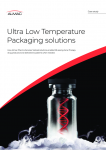Fast patient recruitment cuts clinical trial carbon footprint
Commitments to cut carbon emissions will pressure all sectors to use energy more efficiently. This places extra considerations on the clinical trial industry but tactics to cut carbon emissions may align with other, more traditional aims of studies and contract research organisations (CRO).
Fast recruitment “greatly increased carbon efficiency in terms of emissions per randomised patient”, says research published in Trials. As well as increasing per patient carbon efficiency faster recruitment can cut per trial emissions by contributing to clinical studies finishing sooner.
The UK National Institute for Health Research (NIHR) also highlights the importance of patient recruitment. In soon to be published guidelines the NIHR says spending less time on patient recruitment, as well as a number of other strategies, can help reduce trial carbon emissions.
Use of lighter packaging materials and web-based data entry are also linked to a reduced carbon footprint. Air freight of clinical trial materials is a major contributor to total emissions and, as such, lowering the weight of each treatment pack has a significant impact on a trial’s carbon footprint.
Cutting emissions
Reducing the weight and shipping distances of clinical trial materials cuts carbon emissions but implementing these changes may be impractical. More easily implementable changes include direct data entry and use of web-based training or teleconferencing to reduce travel emissions.
Eliminating obstacles to efficient patient recruitment and trial setup is also proposed as a means of cutting emissions. Quick recruitment in a trial assessed by the research helped cut per patient emissions but the improvement was attributed to use of sites in Asia, South America and Africa.
“Streamlining and improving the regulatory environment has the potential to increase both the carbon and cost effectiveness of medical research”, says the authors. Many have called for an overhaul of UK research regulation and the Government is considering recommendations.
Long-term savings
Healthcare, especially pharmaceuticals, is carbon intensive, say the authors, and as such improvements to efficiency of the medical sector can help reduce emissions. Consequently the researchers highlight the long-term environmental benefits that can be realised by clinical trials.
“The carbon cost of obtaining reliable information from well conducted clinical studies is likely to be dwarfed by that of using treatments that are ineffective or harmful”, say the researchers.
Carbon calculations
Carbon efficiency was calculated by comparing two international clinical trials, CRASH-1 and CRASH-2. A year at both trials was audited, retrospectively, to calculate carbon emissions from the clinical centre, travel and the freight delivery of clinical research materials.
Over the year CRASH-1 produced 40 per cent more carbon dioxide-equivalents. The difference is accounted for by greater emissions from air freight and the clinical research centre. Both trials are non-commercial and the authors speculate industry trials will have larger carbon footprints.











